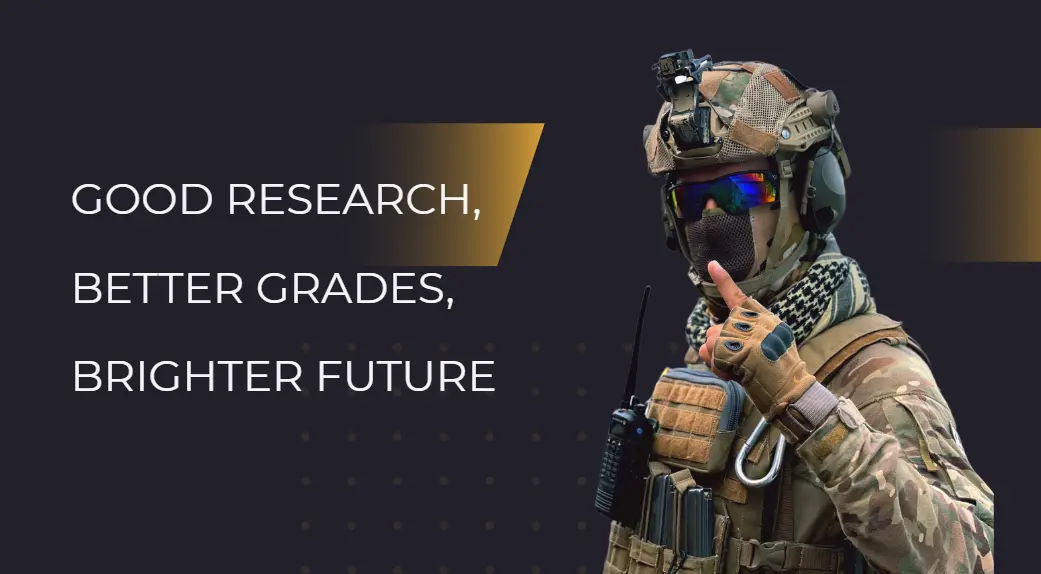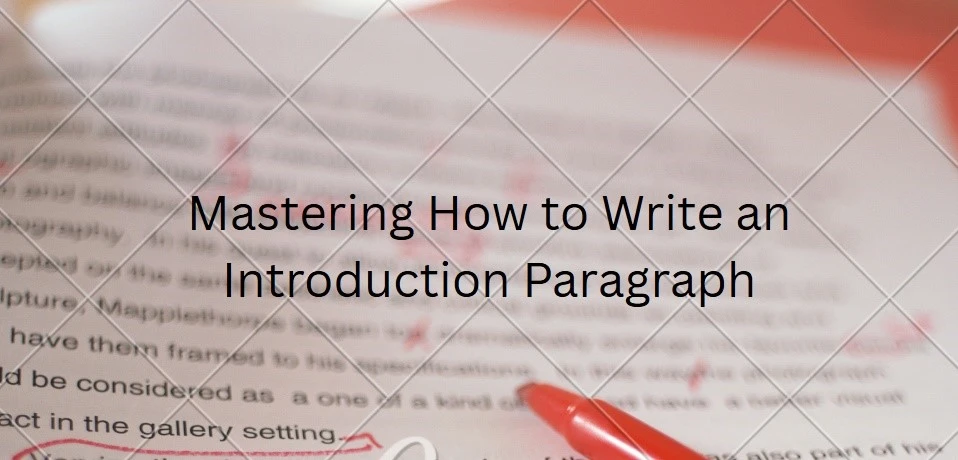
Most Command and General Staff Officer Course (CGSOC) students approach the literature review like a box to check. They summarize articles, cite doctrine, and call it a day.
But here’s the truth: instructors and faculty at the U.S. Army Command and General Staff College can spot that surface-level work instantly.
What separates an average research paper from an exceptional one is the ability to uncover, analyze, and connect sources that most of your peers won’t even think to look for.
Literature Review Tips: Write Like a Pro
At CGSOC, the literature review isn’t just an academic hoop. It’s a stress test of your ability to gather intelligence, separate signal from noise, and communicate findings clearly.
Think of it as mission analysis for ideas. If you approach it like a staff officer preparing a commander’s brief, prioritizing clarity, depth, and actionable insights, you’ll already stand apart.
Let’s break down how to do this.
1: Frame Questions Like an Intel Officer
The biggest mistake students make is asking “school questions” instead of “operational questions.” Instead of:
“What are the key challenges in joint operations in the Indo-Pacific?
A sharper, more military-minded version would be:
“Which joint-command challenges in Indo-Pacific joint operations remain most persistent, and how are INDOPACOM planners addressing them?”
This approach helps you define a clear research focus and ensures your literature review examines both enduring challenges and current solutions: things that CGSOC faculty find far more compelling.
2: Hunt in the Classified Shadows (Without Breaking Rules)
Everyone knows about the Combined Arms Research Library (CARL) and JSTOR. But the most impressive literature reviews go deeper into sources that aren’t on the first page of Google:
-
Defense Technical Information Center (DTIC): A goldmine of unclassified but overlooked technical reports. Many students don’t realize DTIC holds RAND analyses, Army Science Board studies, and field assessments that never get cited in journals.
-
Congressional Research Service (CRS) reports: Free, authoritative, and often give the kind of “big picture + implications” that papers need.
-
Foreign military journals: Professional Military Education (PME) programs in allied nations (like the UK’s RUSI Journal or Canada’s CDA Institute) often critique U.S. doctrine in ways our own publications won’t. Using them shows you’ve thought beyond the American echo chamber.
-
Operational case law: Not court cases, but real after-action reports buried in public archives. Few students bother to dig here, which is why papers that do stand out immediately.
These sources transform your review from predictable to jaw-dropping.
3: Expose the Gaps; Don’t Just Report Consensus
Most students stitch together what others have already said. The strong ones point out what’s missing. For example, if ten articles talk about “whole-of-government approaches” but none explain why interagency friction persists despite repeated lessons learned, that’s your gap.
Graders reward papers that don’t just echo doctrine but highlight blind spots. That’s intellectual initiative, something every officer is expected to show.
4: Write Like You’re Briefing a General
A common trap: academic jargon. Faculty at CGSOC are not impressed by bloated writing. They’re impressed by clarity and accuracy.
Imagine your literature review is a command brief: short sentences, clean synthesis, no wasted words. If a senior officer could skim your paper and immediately grasp the state of the debate, you’ve nailed it.
5: Know the Unspoken Rules of Academic Integrity
Here’s the unspoken truth: plagiarism and AI detection software at CGSC is relentless. Copy-pasting, even with citations, can trigger red flags. What graders want to see is your voice weaving through the sources, not a patchwork of quotes. Paraphrasing deeply, digesting then restating ideas is both safer and more persuasive.
And here’s what no one tells you: over-citation can also sink you. If every sentence ends with a footnote, it signals dependency instead of mastery. The strongest reviews balance authority with independent synthesis.
6: Recognize When to Call for Backup
Time at CGSOC is limited, and research papers compete with field exercises, staff work, and family obligations. Even strong writers can lose momentum when sources are scarce or arguments become unclear.
At that point, calling for support is the smart move. This is not about cutting corners; it’s about using expert input the same way you’d use staff officers to strengthen a plan.
When to Get Assistance on Your Work
Successful CGSOC students turn to our assistance whenever they face challenges such as:
-
Sources exist, but don’t connect.
Having a pile of research doesn’t mean your argument is coherent. Expert support helps you synthesize information into a logical, compelling narrative that meets CGSOC standards.
-
Time constraints threaten completion.
Between staff rides, planning assignments, and personal obligations, deadlines can slip. Backup allows you to stay on schedule without sacrificing quality or depth.
-
Drafts need editing, clarity, or polish.
Even solid ideas can fail if the writing is disorganized or unclear. Guidance ensures your work communicates complex military concepts precisely and professionally.
-
Research questions need focus.
A broad topic weakens your review. Professional help refines your question into something precise, actionable, and academically rigorous.
-
Finding credible, relevant sources is difficult.
Military-relevant materials are scattered across databases, manuals, and after-action reports. Expert assistance identifies the most authoritative and operationally meaningful sources.
What You Gain with Our Expert Help
It is important for CGSOC students to utilize all credible resources that support learning, research, and original writing. As research paper specialists, we assist students by providing support in the following areas:
-
Focused Research Question Development
We help you narrow broad topics into precise, actionable questions that meet CGSOC’s rigorous academic standards. A well-defined question keeps your literature review and analysis targeted and effective.
-
Access to Hard-to-Find Military Sources
From field manuals and after-action reports to the latest joint publications, we guide you to credible, operationally relevant materials that strengthen both the academic and applied aspects of your work.
-
Structured Literature Review Writing
Transform stacks of readings into a coherent narrative. We show you how to organize themes, highlight gaps, and connect ideas to support your argument persuasively.
-
Draft Editing and Revisions
Even strong analysis can fail if poorly presented. We provide professional feedback on clarity, logic, and flow, ensuring your writing is polished, concise, and academically sound.
-
Citation and Plagiarism Checks
Avoid unintentional plagiarism or formatting errors. Our guidance ensures all sources are cited correctly, paraphrasing is proper, and your work fully complies with CGSOC academic standards.
Lead Your Research Like a Commanding Officer
Success at CGSOC demands more than intelligence and discipline; it requires strategy, precision, and knowing when to leverage the right resources.
Just as commanders rely on staff and intelligence to make informed decisions, top students recognize the value of professional support to sharpen their academic edge.
Work with our expert research paper writers and get custom guidance tailored to CGSOC standards, ensuring coherent and well-sourced research that earns top grades.













